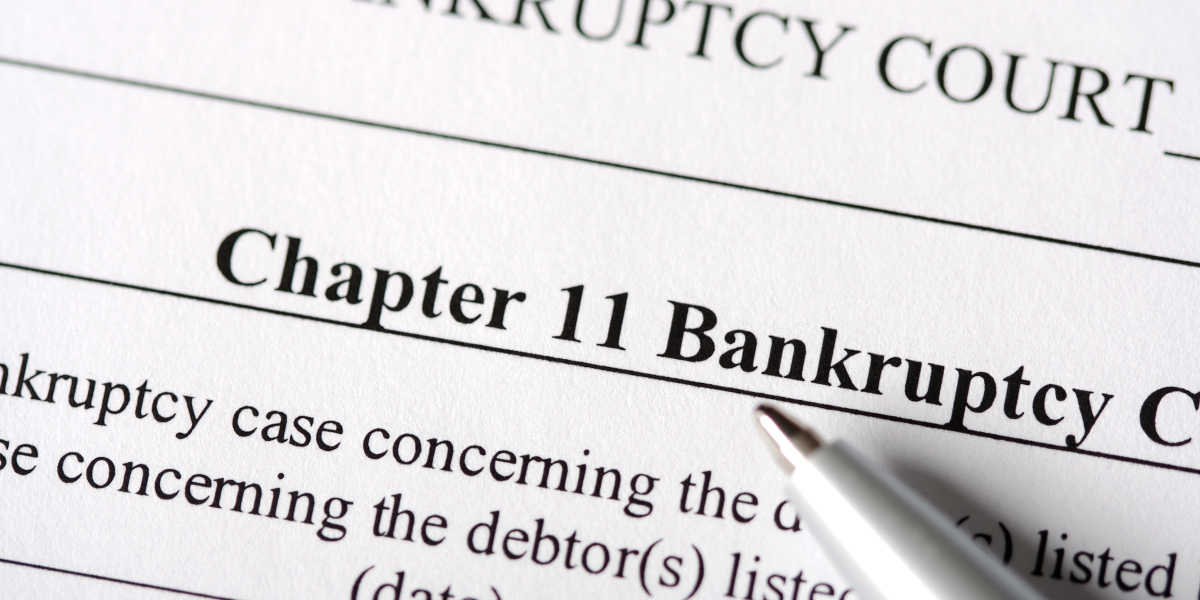
THE EU DIRECTIVE ON RESTRUCTURING AND INSOLVENCY (2019)
The Directive (EU) 2019/1023 of the European Parliament and of the Council, of 20 June 2019, lays down rules on preventive restructuring frameworks available for debtors in financial difficulties when there is a likelihood of insolvency, with a view to preventing the insolvency and ensuring the viability of the debtor; procedures leading to a discharge of debt incurred by insolvent entrepreneurs; and measures to increase the efficiency of procedures concerning restructuring, insolvency and discharge of debt.
This Directive does not apply to insurance undertakings or reinsurance undertakings, credit institutions, investment firms or collective investment undertakings, central counter parties, central securities depositories, other financial institutions, public bodies under national law and natural persons who are not entrepreneurs (article 1).
Member States shall ensure that, where there is a likelihood of insolvency, debtors have access to a preventive restructuring framework that enables them to restructure, with a view to preventing insolvency and ensuring their viability, without prejudice to other solutions for avoiding insolvency, thereby protecting jobs and maintaining business activity.
They also may:
- provide that debtors that have been sentenced for serious breaches of accounting or bookkeeping obligations under national law are allowed to access a preventive restructuring framework only after those debtors have taken adequate measures to remedy the issues that gave rise to the sentence, with a view to providing creditors with the necessary information to enable them to take a decision during restructuring negotiations;
- maintain or introduce a viability test under national law, provided that such a test has the purpose of excluding debtors that do not have a prospect of viability, and that it can be carried out without detriment to the debtors’ assets;
- limit the number of times within a certain period a debtor can access a preventive restructuring framework (article 4).
Member States also shall ensure that debtors accessing preventive restructuring procedures remain totally, or at least partially, in control of their assets and the day-to-day operation of their business. Where necessary, the appointment by a judicial or administrative authority of a practitioner in the field of restructuring shall be decided on a case-by-case basis, except in certain circumstances where Member States may require the mandatory appointment of such a practitioner in every case (article 5).
Furthermore, debtors must benefit from a stay of individual enforcement actions to support the negotiations of a restructuring plan in a preventive restructuring framework and shall ensure that a stay of individual enforcement actions can cover all types of claims, including secured claims and preferential claims, but excluding workers’ claims unless ensure that the payment of such claims is guaranteed in preventive restructuring frameworks at a similar level of protection.
It can be exclude certain claims or categories of claims from the scope of the stay of individual enforcement actions, in well-defined and duly justified circumstances and if enforcement is not likely to jeopardise the restructuring of the business or the stay would unfairly prejudice the creditors of those claims (article 6).
Where an obligation on a debtor, provided for under national law, to file for the opening of insolvency proceedings which could end in the liquidation of the debtor, arises during a stay of individual enforcement actions, that obligation shall be suspended for the duration of that stay.
If the restructuring plan is not enough and an entrepreneur declares insolvency, the Member States shall ensure that they have access to at least one procedure that can lead to a full discharge of debt. The States may require that the trade, business, craft or profession to which an insolvent entrepreneur’s debts are related has ceased (article 20).
If a full discharge of debt is conditional on a partial repayment of debt by the entrepreneur, the repayment obligation should be is based on the individual situation of the entrepreneur and, in particular, should be proportionate to the entrepreneur’s sizeable or disposable income and assets during the discharge period, taking into account the equitable interest of creditors.
The insolvent entrepreneurs which are able to be fully discharged from their debts can’t be longer than three years starting: in the case of a procedure which includes a repayment plan of the decision by a judicial or administrative authority to confirm the plan or the start of the implementation of the plan; or in the case of any other procedure, the decision by the judicial or administrative authority to open the procedure, or the establishment of the entrepreneur’s insolvency estate.
Member States shall ensure that insolvent entrepreneurs who have complied with their obligations, where such obligations exist under national law, are discharged of their debt on expiry of the discharge period without the need to apply to a judicial or administrative authority to open a procedure additional.
Where an insolvent entrepreneur obtains a discharge of debt, any disqualifications from taking up or pursuing a trade, business, craft or profession on the sole ground that the entrepreneur is insolvent, shall cease to have effect, at the latest, at the end of the discharge period.
A full discharge of debt does not hinder, necessarily, the continuation of an insolvency procedure that entails the realisation and distribution of assets of an entrepreneur that formed part of the insolvency estate of that entrepreneur as at the date of expiry of the discharge period (article 21).
Where the insolvent entrepreneur acted dishonestly or in bad faith under national law towards creditors or other stakeholders when becoming indebted, during the insolvency proceedings or during the payment of the debt, Member States shall maintain or introduce provisions denying or restricting access to discharge of debt, revoking the benefit of such discharge or providing for longer periods for obtaining a full discharge of debt or longer disqualification periods, such as where:
- the insolvent entrepreneur has substantially violated obligations under a repayment plan, or any other legal obligation aimed at safeguarding the interests of creditors, including the obligation to maximise returns to creditors;
- the insolvent entrepreneur has failed to comply with information or cooperation obligations under Union and national law;
- there are abusive applications for a discharge of debt;
- there is a further application for a discharge within a certain period after the insolvent entrepreneur was granted a full discharge of debt or was denied a full discharge of debt due to a serious violation of information or cooperation obligations;
- the cost of the procedure leading to the discharge of debt is not covered; or
- a derogation is necessary to guarantee the balance between the rights of the debtor and the rights of one or more creditors.
It may be exclude specific categories of debt from discharge of debt, or restrict access to discharge of debt or lay down a longer discharge period where such exclusions, restrictions or longer periods are duly justified, such as in the case of:
- secured debts;
- debts arising from or in connection with criminal penalties;
- debts arising from tortious liability;
- debts regarding maintenance obligations arising from a family relationship, parentage, marriage or affinity;
- debts incurred after the application for or opening of the procedure leading to a discharge of debt; and
- debts arising from the obligation to pay the cost of the procedure leading to a discharge of debt.
Member States shall adopt and publish, by 17 July 2021, the laws, regulations and administrative provisions necessary to comply with this Directive.
Portugal has not yet transposed the directive. Although an important part of the legislative objectives is already a reality in Portuguese legislation, perhaps the transposition of the Directive will improve Portuguese legislation on insolvency and corporate restructuring, especially at this time, marked by COVID-19.
One upside of coronavirus is that these reforms should be enacted quickly, so enhancing recovery prospects in many more countries throughout the EU.




